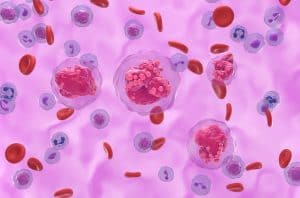‘Open door’ for pharma
pharmafile | December 6, 2012 | News story | Sales and Marketing | CCGs, NHS, NICE, Pharmafocus, Prescriber, UK
The NHS’s new clinical commissioning groups (CCGs) will be more welcoming to approaches from pharma than the old PCTs were, pledged a leading CCG head.
“That shut door to pharma is no longer the case,” said Dr Jim Hogan, Portsmouth CCG clinical leader.
“The future with pharma is about better collaboration,” he went on at yesterday’s Pharmafocus and Prescriber conference, ‘CCGs, the new NHS and pharma’.
CCGs and pharma shared the same priorities to some extent, he believes. “We’re looking to improve the reputations of primary care, secondary care and pharma,” Hogan said. “I want to be seen as a credible commissioner.”
Better outcomes, more patients treated appropriately and better pathways were going to be the key ingredients to achieve this, Hogan added.
But these would all have to be achieved against a backdrop in his CCG of taking £5 million a year out of the budget for the next three years.
“The financial environment is very tough – is would be easy to do a lot of these things when you’re going forward with growth,” he went on. “We’re going to have to make some difficult decisions – it’s about making sure they don’t affect outcomes.”
“We’ll be more interested in the outcomes than in money, to a degree,” he suggested.
But cost pressure is huge, and that is part of the reason why it is so important for pharma to be actively working with commissioners to see where companies could help, Hogan said.
“The movement now is for medicines optimisation – we’ve ‘done’ medicines management,” he added.
“We want to see pharma working with commissioners on things like cost impacts when new products come out. We need to know that it’s going to save us money,” he explained.
Opportunities had been lost in the past to improve outcomes in areas such as diabetes, he went on, but missing chances to improve patient care must now stop.
“Long-acting insulin allows us to save against hypoglycaemic admissions,” Hogan pointed out. “There is an opportunity for pharma to do some of that project management.”
Pathways are also planned in silos, he went on, suggesting that “pharma could play a role in smoothing out some of that for us”.
Adam Hill
Related Content

NICE recommends migraine treatment for NHS use
The National Institute for Health and Care Excellence (NICE) has shared draft guidance recommending AbbVie’s …

GSK’s Jemperli recommended by NICE for endometrial cancer treatment
GSK has announced that the National Institute for Health and Care Excellence (NICE) has recommended …

NICE recommends SC treatment of AbbVie’s Tepkinly for patients with DLBCL
AbbVie has announced that the National Institute for Health and Care Excellence (NICE) has recommended …








